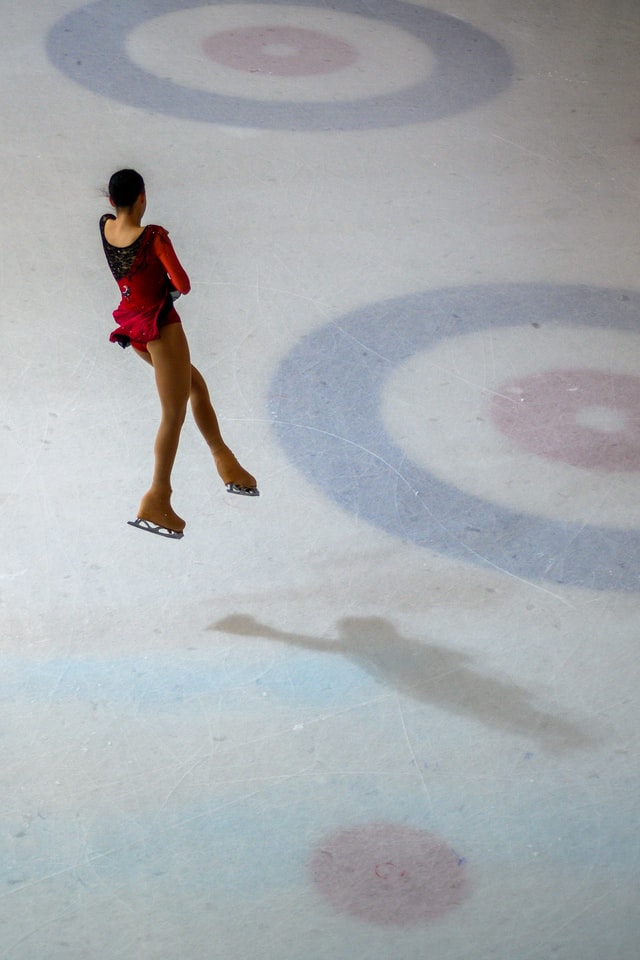🧑🏻 Michael Zhao
On Running 2: seeking out fairness in low places
by Michael Zhao
I am basically Forrest Gump
Want to hear something impressive? I ran for three consecutive days for the first time last week. Even though each run was about 4 - 4.6 miles (which is incredibly average for amateur runners), I was proud that I finally ran through some soreness and still maintained my old speed.
Before embarking on this mild quest, I watched a YouTube video about proper running form, and it said to focus on five things: keep your back straight, increase your cadence (quantity of steps), decrease your stride length, strike your foot at the center of gravity, and stare into the horizon. While the first four things seemed directly helpful, I was a bit confused on the last thing: what’s so important about the horizon? Maybe it’s a requirement for keeping your back straight.
It was harder than I thought to focus on the horizon. It turns out that I’m used to staring at the ground when I run. I don’t think this is normal - but according to my grandparents, even when I was younger I would always be looking at the ground. They say it’s because I was searching for something; apparently I had an affinity towards finding fallen bird eggs back in Indiana, and that habit has unconsciously stuck around since.
When I successfully focused on the horizon, I couldn’t feel immediate tangible progress - my eyes would fix toward a point, and the point would stay relatively the same size. Conversely, when I looked down, the pavement became a blur, and the perceived motion made me feel fast.
Yet, looking into the horizon had one thing over looking at the ground: it was beautiful. Instead of focusing on the road, I got to witness a slow-moving panorama - like I was gradually running deeper into a painting. And even though I felt slower, the distraction was worth the tradeoff - instead of focusing on how hard it is to maintain X speed, my thoughts would drift to: “There was a golf course behind these trees this whole time?” to “These clouds look so uniform!” to “These grasses make me feel like I’m in Ghost of Tsushima.” to “Wow, that is a lot of goose shit.” Ironically, looking at the horizon improved my pace (8:30 to 8:00) and lowed my bpm (178 to 171). When I looked at my results, I wondered if the YouTube guy meant for the horizon tip to be a psychological hack rather than a physical hack.
Being bad at something means paying attention
In a weird way, I’m glad I have a hard time running because it forces me to pay attention: I’m constantly thinking about whether I’m breathing too fast, if I should pace myself for this mile and go faster the next, or vice versa, etc.
I re-watched another video that I had saved by an Japanese language learning account called Matt v. Japan. One thing he said that makes beginner Japanese learners progress fast is that there is constant feedback on what is and isn’t working. Because beginners are paying extremely close attention to what isn’t working (because mistakes are very apparent at lower levels), they identify issues and progress faster. However, once you achieve a certain level of proficiency, progress stalls because you stop paying attention. After basic fluency is achieved, there is a bias towards “I figured this out” and less attention is placed on deeper level language nuances, like tone, sentence orientation, formality, etc., which is the difference between proficiency and fluency. When I apply this logic to running, I realize that the pain I experience right now is probably a good thing for my development as a runner. Maybe the benefits of paying attention apply to more than just running times.
Murakami on being bad at writing:
“Writers who are blessed with inborn talent can write easily, no matter what they do—or don’t do. Like water from a natural spring, the sentences just well up, and with little or no effort these writers can complete a work. Unfortunately, I don’t fall into that category. I have to pound away at a rock with a chisel and dig out a deep hole before I can locate the source of my creativity. Every time I begin a new novel, I have to dredge out another hole. But, as I’ve sustained this kind of life over many years, I’ve become quite efficient, both technically and physically, at opening those holes in the rock and locating new water veins. As soon as I notice one source drying up, I move on to another. If people who rely on a natural spring of talent suddenly find they’ve exhausted their source, they’re in trouble. In other words, let’s face it: life is basically unfair. But, even in a situation that’s unfair, I think it’s possible to seek out a kind of fairness.”
